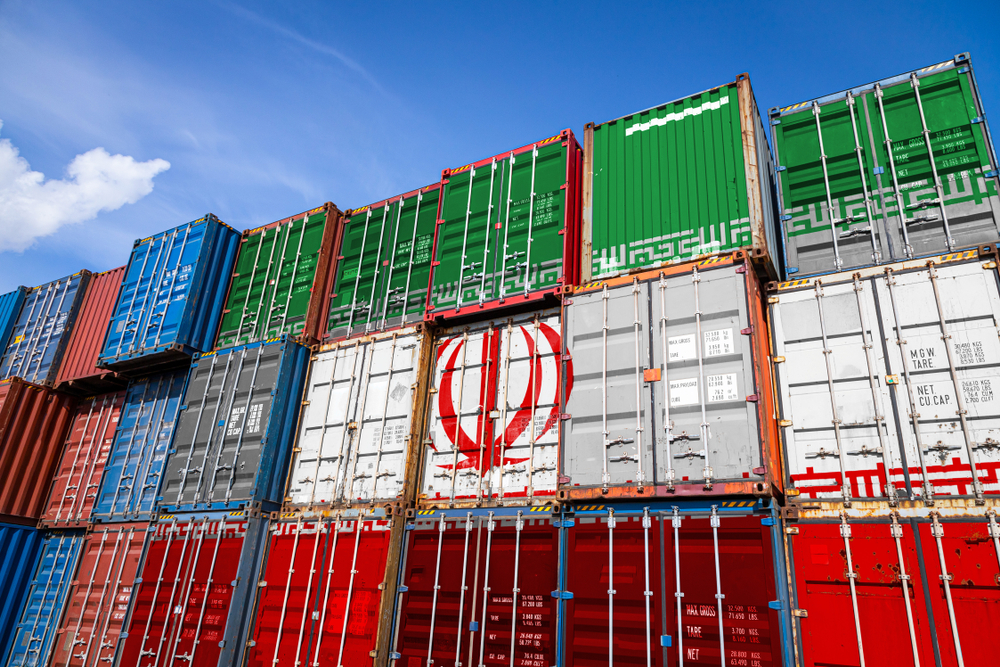Iran has been moving to improve bilateral economic relations with some of its neighboring Arab countries, hoping this will serve to increase the level of Iranian exports and improve overall GDP. These attempts will not come without their challenges, including a weak regional infrastructure in finance, railways, roads, port facilities and custom facilities.
There have been several initiatives by Iran in this respect lately, such as the statement on the 8th of October by the head of the Iranian Trade Development Organization Ali Reda about the development of financial network for Iranian traders in the Sultanate of Oman. Iranian Minister of Roads and Urban Development Rostam Ghasemi also proposed, during a meeting with the President of Syria Bashar Al Assad, the creation of an Export Guarantee Fund to protect the interest of companies that wish to operate in Syria.
In this context, during a meeting with his Syrian counterpart Zohair Khazeem, Ghasemi discussed mechanisms to create a railroad system to transport passengers and goods between Iran, Iraq and Syria, which highlights Iranian interest in strengthening economic relations with these countries. On October 17th, economic assistant to the Iranian president Mohsen Rezaee visited Qatar and met with the Emir of Qatar Sheikh Tamim bin Hamad. This came in the context of the inauguration of the Iranian Economic Exhibition on the eve of the World Cup, and follow up on agreements previously concluded between the two countries.
Iran hopes to achieve a number of objectives from these efforts, including:
Increasing Iranian Exports: Iran’s neighboring countries rank quite low in terms of global trade, with the 15 neighboring countries making up only 5% of the global economy, however they could play an important role in breaking Iran’s economic isolation. Iran’s current government is looking to increase non-oil and petrochemical exports to compensate for the fiscal deficit caused by the economic sanctions on the oil industry.
Iran wishes to profit from the experience of other countries such as China, South Korea and Japan, which indicates that opening trade offices abroad plays an important role in increasing exports. Iran has set up trade offices in Iraq, Afghanistan, Kazakhstan and Russia, which has improved economic, as well as political, relations with these countries.
Benefiting from the World Cup: Iran is making a big effort to capitalize on the upcoming World Cup in Qatar. It has improved its own transportation infrastructure, logistical services and hotels, hoping to welcome some of the fans who will be coming to the region to watch the matches. It is hoped this will provide Iran with a source of hard currency which is in short supply due to economic sanctions by the United States.
Increasing the volume of trade:
Economic openness and an active presence on the world stage would be helpful in overcoming some of the issues facing Iran today. In that regard Ali Reda head of the Iranian Trade Development Organization announced a $3 billion trade agreement with Qatar lasting until 2025. This announcement coincided with Mohsen Rezaee’s visit to Doha. Iran believes that developing trade relations with different countries will help expand the supply of goods and services on the domestic market, giving consumers more choices. Diversifying supply sources could also help reduce costs of purchases, reducing the strain on government finances.
Enhancing domestic production:
Iran appears to hope that expanding external trade relations will increase exports and therefore strengthen the domestic economy, and create new job opportunities to ease both economic and political pressures on the regime.
Potential Obstacles
Iran will face many challenges in its efforts to improve economic relations with neighboring Arab countries, not least of which is regional political polarization. For example, the economic relations between Iran and Saudi Arabia have suffered from severe stagnation due to strained relations between the two countries. Poor logistics are also a factor, for despite Iran’s geographic proximity to these countries, the infrastructure for transportation by rail or road, the facilities in the ports are all inadequate for expanding the volume of trade. The facilities for financial transfers, as well as the procedures for obtaining visas and permits for businesses, are also underdeveloped. Iran will have to focus on developing these areas in order to achieve its objectives in increasing trade.


